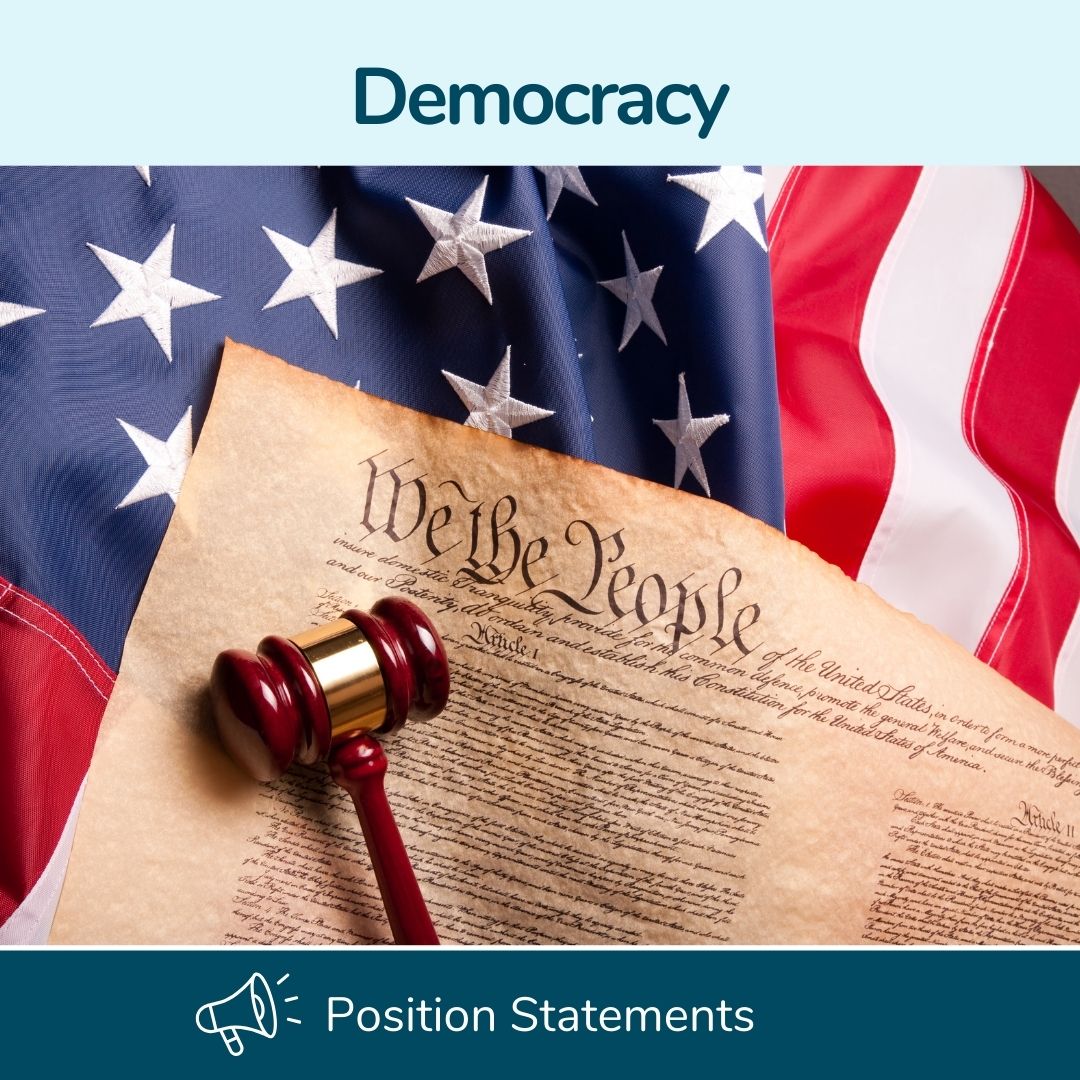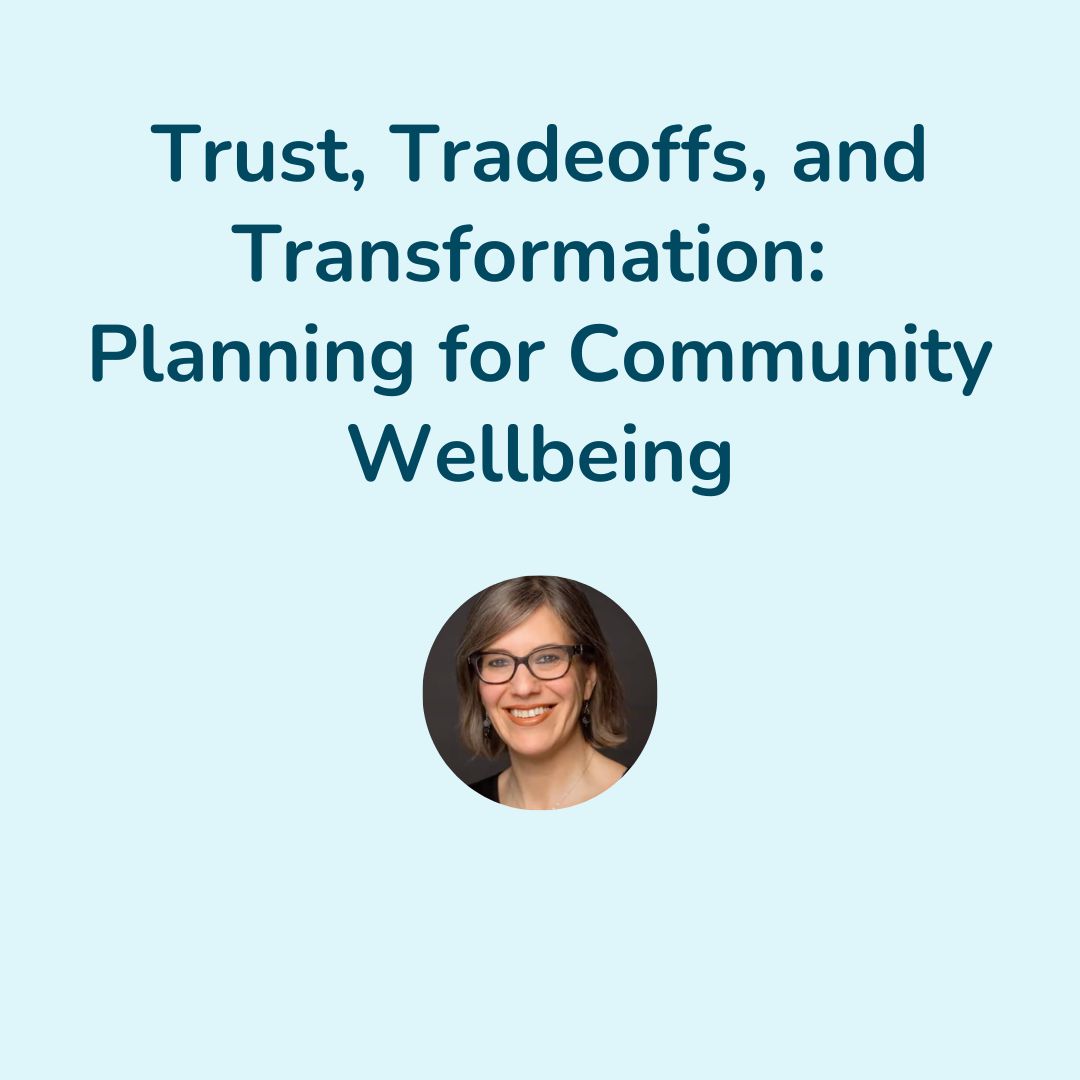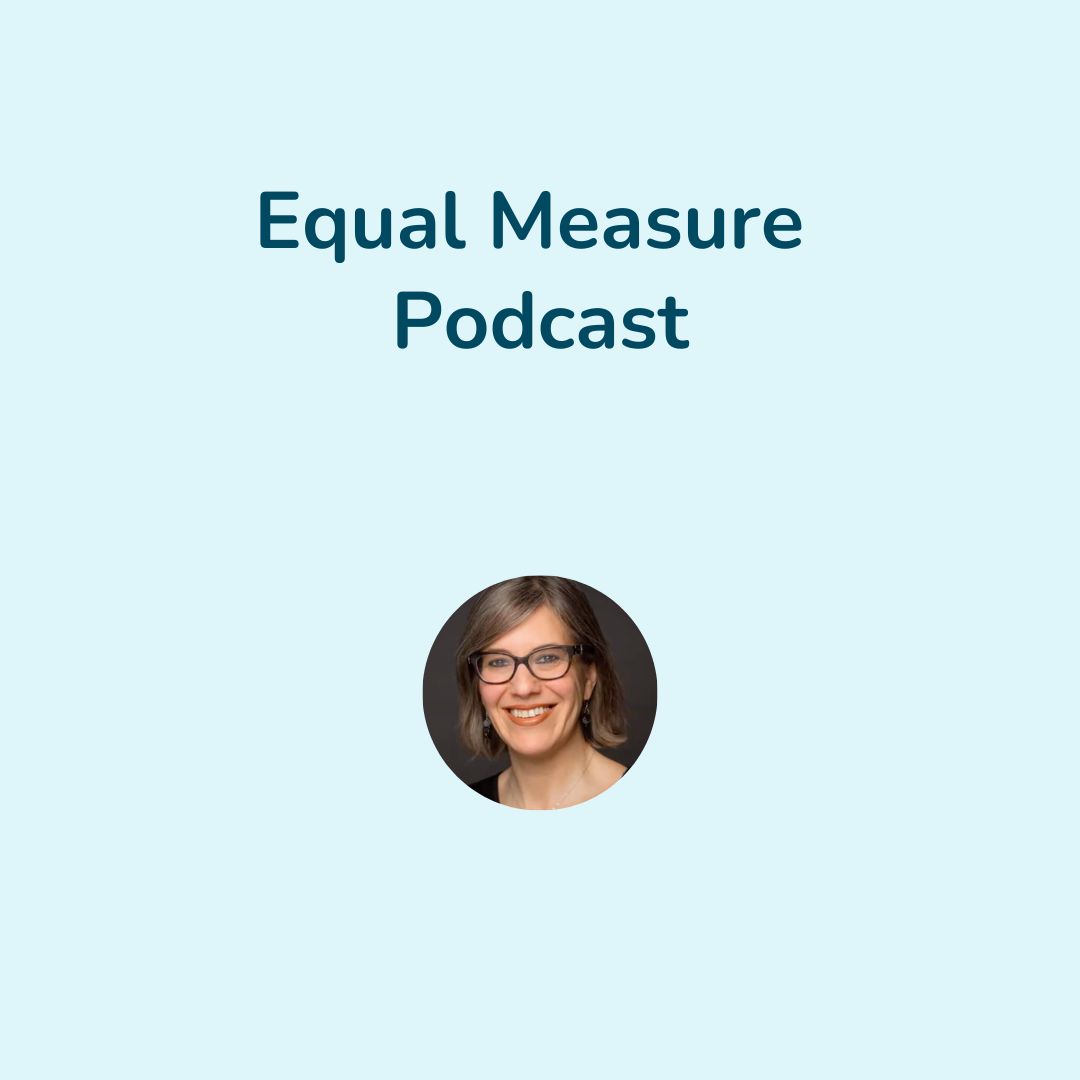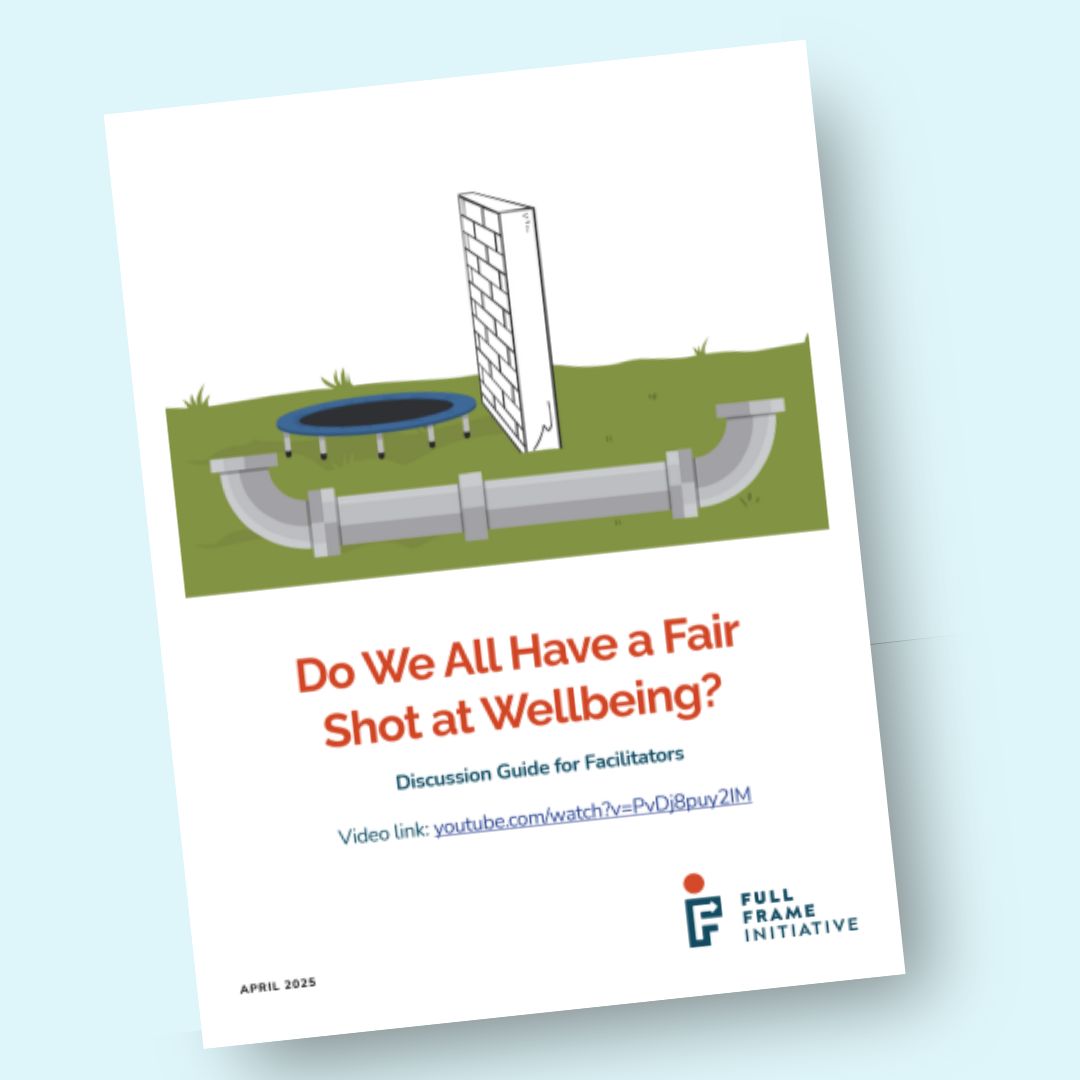
Not everyone in our country has equal access to our democracy, or to our democratic processes. This cuts against the promises of freedom and fairness embedded in our nation’s founding. It also gets in the way of a fair shot at wellbeing.
Historical, ongoing and recent attacks on democracy are attacks on wellbeing. Othering is embraced. Social connectedness, stability and safety are under attack. People’s sense of mastery – the degree to which they have influence over their own lives – is fading. And, meaningful access to relevant resources is being legislated away from many. Rights and privileges for some. Restrictions and boundaries for others. The current state of our democracy calls for healing, and focusing on access to wellbeing can help that healing take place.
Is a thriving democracy a country where everyone has a fair shot at wellbeing? We think so. Wellbeing is a catalyst for democracy. It’s about all of us – not othering – which is at play now. Wellbeing can be a starting place to spark a wide conversation that can engage and unite across differences. Isn’t that what democracy is all about?
To ensure that we can all participate in our democracy equally we need to start with what matters to people, and what matters to people is wellbeing.
The premise of a democratic system is that power is vested in the people and exercised by them. But who gets to exercise that power and thereby drive – or control – access to the rights and privileges we’re all supposed to have is in question. Policies can create conditions that drive or diminish access to wellbeing – to the prime conditions needed for a democracy.
So, what if we focused on wellbeing as the design principle for reshaping our systems and getting us closer to the promise of democracy? What if we could make different decisions by analyzing problems and possible solutions through a wellbeing lens? Then we can work together to make these “what ifs” reality.
In a democracy opposing interests can exist at the same time, in the same place, and America has competing interests throughout its vast domain. That doesn’t mean we can’t shape our nation so that everyone has a fair shot at wellbeing. Today, we find too often that debate is hampered or prohibited. But debate is healthy and warranted. The exchange of ideas. The building of common interests through respectful engaged dialogue with people and communities is how democracy works. This is how wellbeing is shaped. This is how we heal.
So, how do we foster a society that makes access to wellbeing possible – working for democracy, not against it? There’s hope. We can have a thriving and successful democracy where everyone has a fair shot at wellbeing.
By centering community and wellbeing, we can take stock of what we all need to be whole. How we need to shape our democracy. What we need to do to move forward. The policies we live by are created as a result of the democratic process. We all have a stake in that process and we should all have a say in it as well. Shoring up everyone’s access to democracy, supporting civic engagement and pressing for accountability will ensure that we do.
Even with the best intentions, the democratic process can lead to collateral harm. By prioritizing equitable access to wellbeing as a measure of progress, however, we can shape policies that undo past harms and restore communities that have historically been cut off from the democratic process. An intentional, wellbeing-oriented design process is what’s needed.
These design principles can service as guideposts for creating equitable access to wellbeing:
Wellbeing can be the framework – the catalyst – to repair, reengage and heal our democracy. Wellbeing unlocks issues in deep blue and deep red states alike, and everywhere in between. It opens up the conversation and lets people in from all backgrounds.

Katya Fels Smyth introduced WIATT (the Wellbeing Insights, Assets & Tradeoffs Tool) in a webinar for the American Planning Association, St. Louis.

Katya sat down with Equal Measure President and CEO Leon T. Andrews, Jr. to discuss the five domains of wellbeing, the importance of sustained funding for systems change, and FFI’s closure this year.

This discussion guide accompanies the video of the same name that introduces a powerful visual analogy for the systems that lead to unequal access to wellbeing.